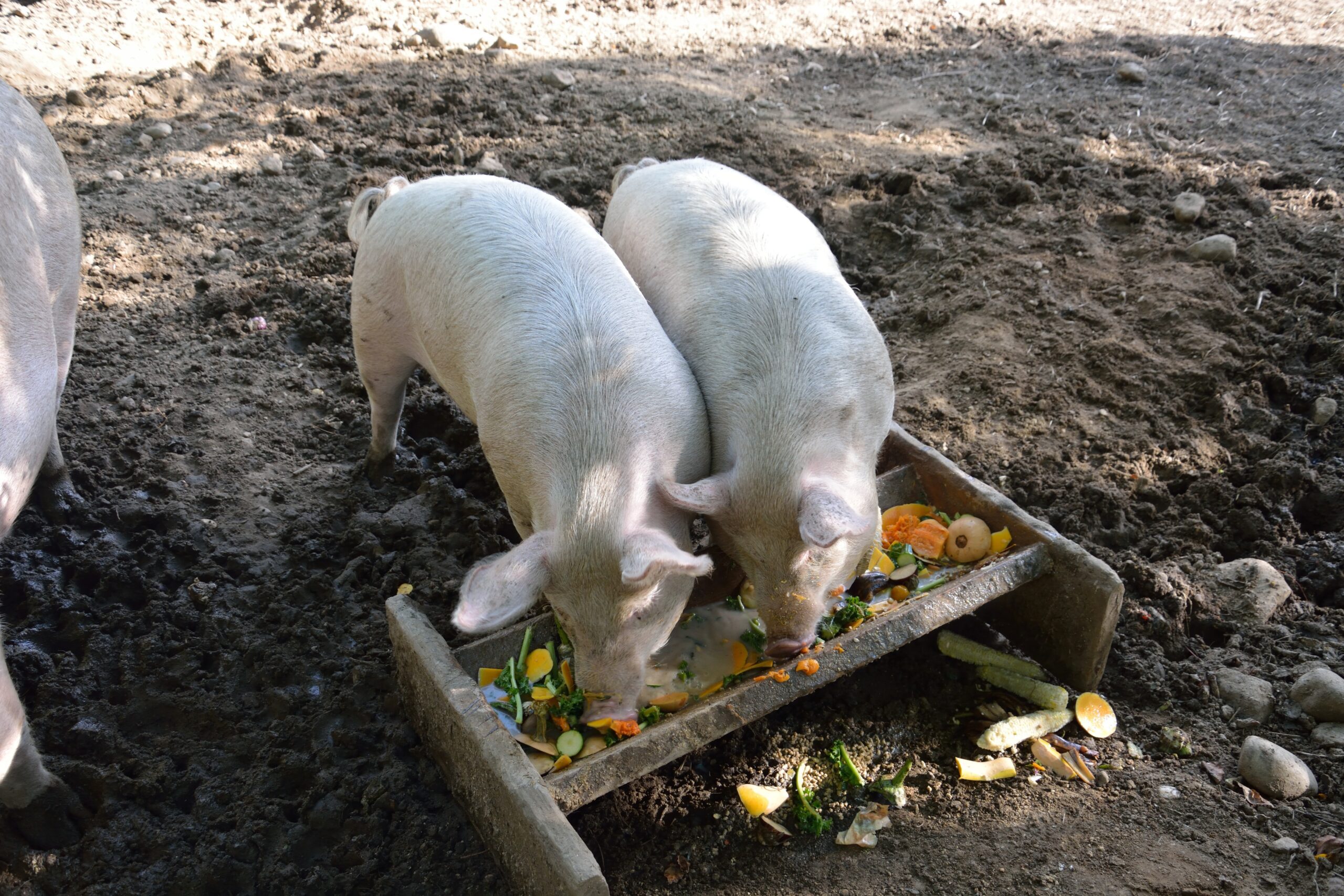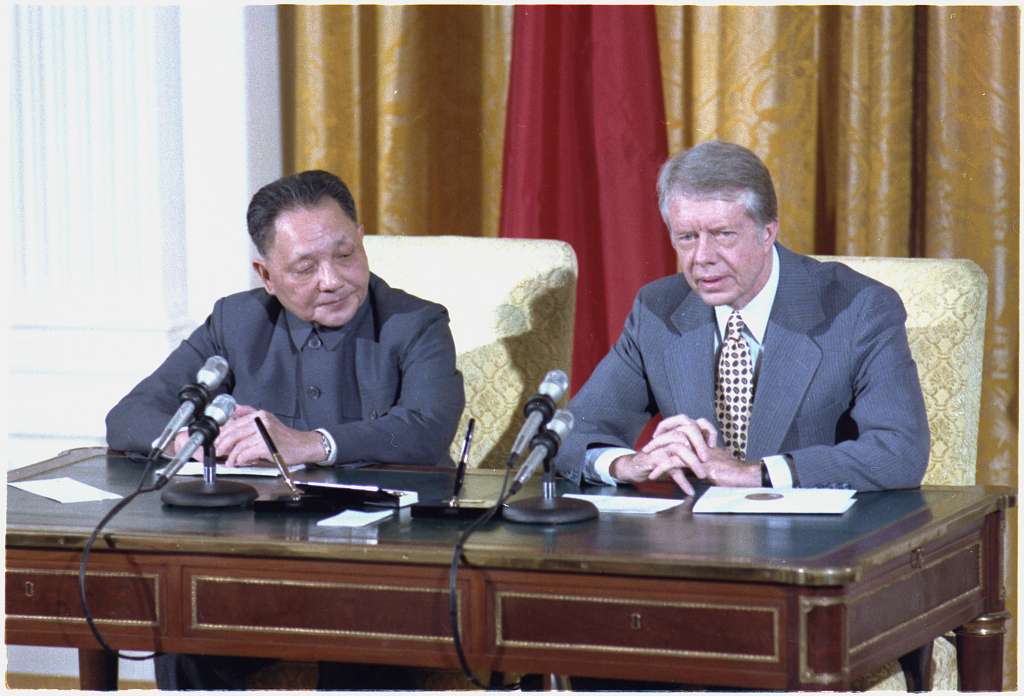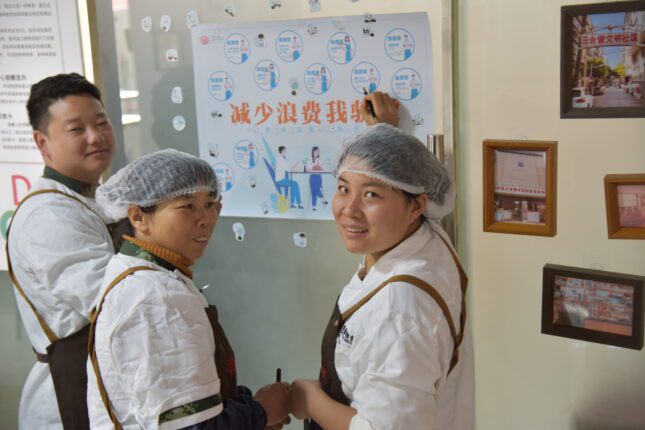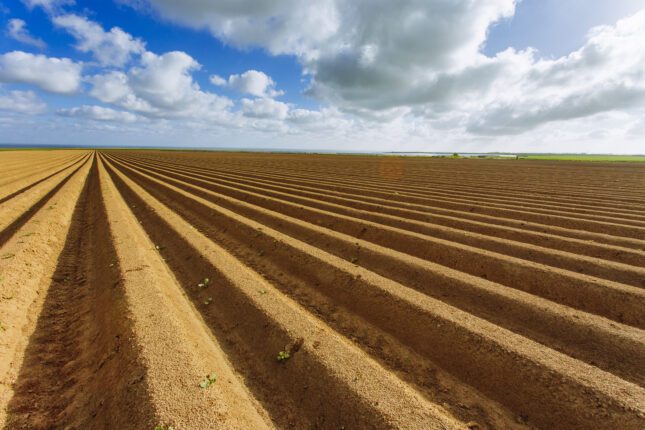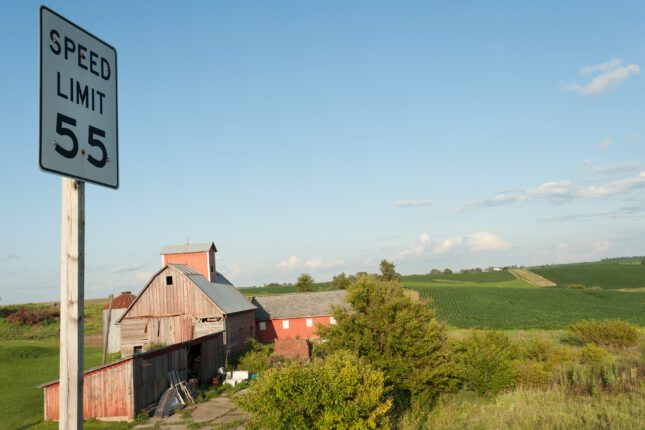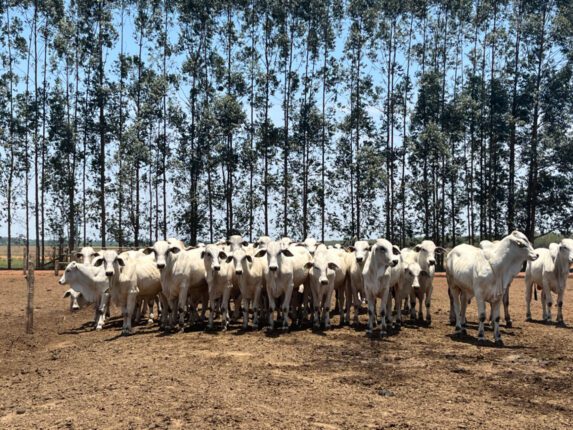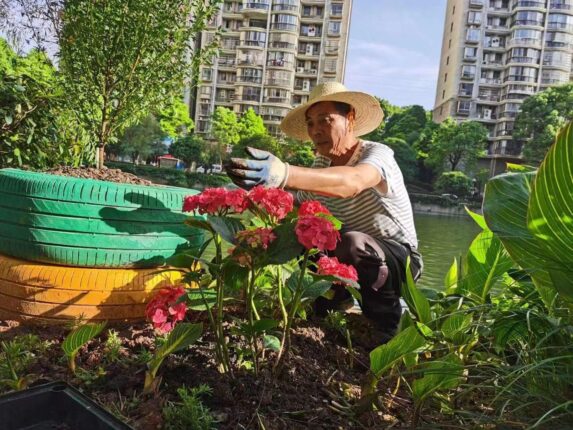-
Tapping an Innovative Climate Solution: Upscaling Food Waste to Animal Feed in Japan and China
›The numbers are staggering. A third of the food produced in the world is lost or wasted—from farms and food processing factories to grocery stores, restaurants, and homes. This growing mountain of rotting food is a major methane emitter, accounting for 8 to 10 percent of global greenhouse gas emissions. If food waste were a country, it would be the third largest greenhouse gas emitter, with the United States and China as leading food wasters.
-
US Agricultural Success Built on US-China Scientific Exchange
›China Environment Forum // Cool Agriculture // Guest Contributor // December 5, 2024 // By Karen Mancl“History teaches that China and the United States gain from cooperation and lose from confrontation” was part of the congratulatory note from Xi Jinping to President-elect Trump. Xi also stressed both sides should continue to uphold “mutual respect, peaceful coexistence and win-win cooperation.” The cooperation between these two superpowers began in 1972 when President Richard Nixon and Premier Zhou Enlai signed the Shanghai Communiqué, years before they established diplomatic relations.
-
Tackling Food Waste in China’s Restaurants
›China Environment Forum // Cool Agriculture // Guest Contributor // May 2, 2024 // By Shiyang Li & Sam GrayBack in 2020, Shiyang Li at Rare visited restaurants across China to interview over 30 different owners and staff about the attitudes, beliefs, and everyday behaviors that contribute to food waste. Similar to global trends, food waste in China remains a significant challenge. A 2020 survey found restaurants in Chinese cities wasted at least 34 million tons of food every year, which can feed as many as 49 million people.
-
Food Waste: A Low-Hanging Fruit for Methane Reductions
›China Environment Forum // Cool Agriculture // February 8, 2024 // By Jennifer Nguyen, Jennifer Turner & Karen ManclThis blog is modified from the Wilson Center-OSU “Cultivating US and Chinese Climate Leadership on Food and Agriculture Roadmap” publication.
“Waste is something that most of us just don’t see,” stressed Pete Pearson, Senior Director, Food Loss and Waste, WWF, at a recent Wilson Center event. Though people are “conditioned” to be blind to food waste, continued Pearson, this not-so-invisible problem wastes a third of food grown around the world. When this wasted food decomposes, it emits methane, accounting for 8 to 10% of global greenhouse gas (GHG) emissions.
-
Climate Action on the Farm: Catalyzing a No-till Revolution in the US and China
›China Environment Forum // Cool Agriculture // Guest Contributor // February 1, 2024 // By Abigail OrdillasFor centuries, farmers around the globe have tilled the soil to prepare for planting. Traditional tilling, however, exposes the bare earth to wind and water, causing erosion and the loss of soil organic carbon, as well as lowering soil quality and crop yields. In the US Corn Belt tilling has degraded approximately 35% of the land– about the size of Montana. In China, erosion from traditional tilling has degraded over 50% of agricultural soils. In the two countries soil erosion and loss of soil fertility is creating annual economic losses of $1.9 billion and $3.7 billion, respectively. Nevertheless, farmers are often hesitant to switch to no-till practices.
-
A Commune in Rural Iowa Inspires Reform in China’s Countryside
›China Environment Forum // Cool Agriculture // Guest Contributor // January 18, 2024 // By Karen ManclA quiet agricultural community in east, central Iowa is a surprising place to learn about the evolution of communes in the United States. While a graduate student at Iowa State University, I first visited the Amana Colonies in 1979. The brick homes, the woolen mill, and the community kitchens were first built in 1855 by a group of German immigrants, forming the now oldest commune in the country.
-
Is the Chinese Market Hungry for Carbon-Neutral Beef?
›
Days before Brazilian President da Silva Feb visited China in late March 2023, China resumed its beef imports from Brazil after a temporary ban due to an earlier discovery of Mad Cow Disease. Brazil quickly bounced back as the top exporter of beef to China, a country hungry for it. With the continuous growth of China’s economy, population, urbanization, and increasing income levels, there has been an increased demand for high-protein foods. Among these, beef has become a highly sought-after delicacy. Since 2012, China has transitioned from a net exporter to a net importer of beef, primarily relying on countries like Brazil.
-
Bottom-Up Food Waste and Climate Solution in China
›China Environment Forum // Cool Agriculture // Guest Contributor // waste // December 21, 2023 // By Xuehua Zhang
China is the world’s largest emitter of methane, a short-lived climate pollutant that traps 80 times more heat than carbon. Coal mining, agriculture, and food waste are China’s three biggest methane emitters. Among them, food waste holds the most promise for near-term climate action.
Showing posts from category Cool Agriculture.


